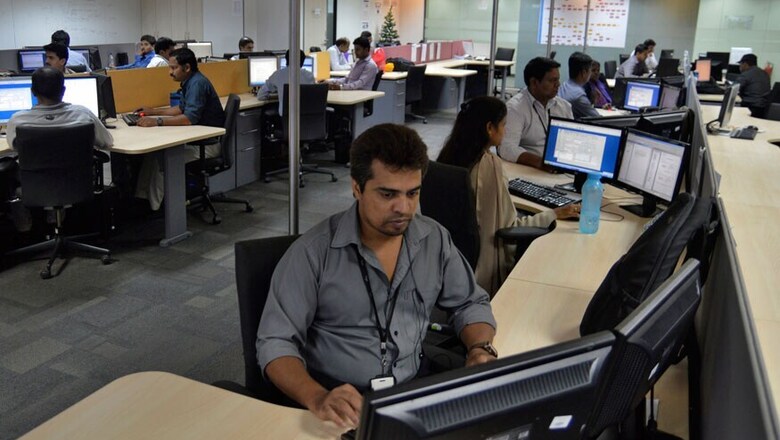
views
Automation is the biggest threat facing Indian IT jobs. The situation, irrespective of what IT companies say, is grim.
“Most companies are cutting down on managerial positions. It’s like taking off the fat in your body. These are people who have been in the company for long, are taking home big salaries, but have sort of lost touch with the client base,” said Kris Lakshmikanth, founder, Head Hunters India. Automation, he adds, will eliminate at least 30% of the 40 lakh tech jobs.
Additionally, he adds, companies are now looking at ‘platforms’. “Firms are now looking at developing platforms based on artificial intelligence (AI). Infosys’s Vishal Sikka is talking about it, IBM has Watson, and so on and so forth. These platforms basically imply that they need less manpower but more money. So, the most immediate thing for them to do is cut down on salaries, thereby people, and hire people who are more in touch with today’s technology but can be hired at much lower costs,” he added. According to McKinsey, on an average, 69% jobs in India are susceptible to automation.
Boom time over for IT firms?
“Indian companies have failed to touch base with technology at the required pace. This is a major factor. The size of the projects that these companies get now has reduced. This has not gone well with many companies in terms of business, especially the top 5 ones,” Lakshmikanth said. Clients, he adds, are now open to the idea of working with smaller firms that are in tandem with technology.
The sector, however, will continue to thrive, but the growth rate will not be high. “It’ll be like any other industry. The growth of the industry will be somewhere around 5-7% over the next 4-5 years. As of now, it’s affecting 1,00,000-2, 00,000 people and this is not a one-year or two-year affair,” he said. Companies have also failed to capitalize on domestic markets, he adds. “Look at Facebook, for example. It has a strong domestic base. Only then did it grow outwards. Indian IT firms on the other hand have looked to earn in dollars. Only now are they trying to build their domestic market share,” says Lakshmikanth.
Is there a way out?
This is, as Lakshmikanth says, the ‘digital tsunami’. Quite a number of earthquakes will lead to something big. But, that comes at a price.
“Those willing to work at lower salaries with average skill set will find a way out. There is a structural change in the industry and the firms need people who are okay with that change and are willing to save the firm a lot of money,” says Lakshmikant.
The glass is half full. “Or it’s half empty. You can look at either way. The best possible way for firms would be to increase their domestic share. Make mistakes, learn from it and then move out,” he says.




















Comments
0 comment